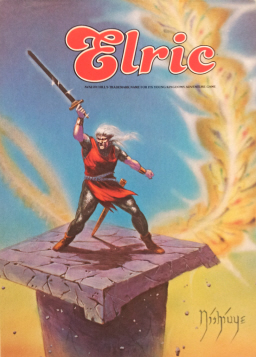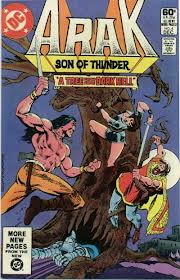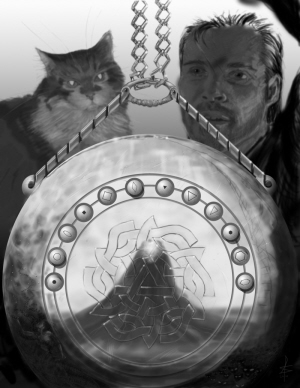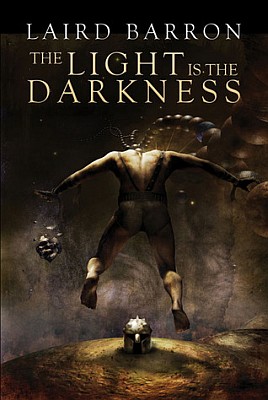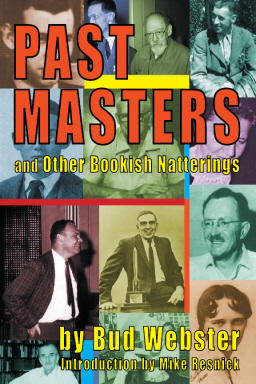The Top 20 Black Gate Fiction Posts in June
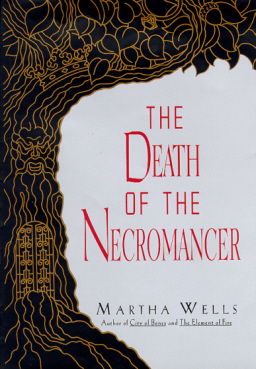 We were pleased and honored to present Martha Wells’ Nebula-nominated novel The Death of the Necromancer as part of our Black Gate Online Fiction lineup last month. The complete text of the novel — all 22 chapters — was offered here for free, for the first time anywhere.
We were pleased and honored to present Martha Wells’ Nebula-nominated novel The Death of the Necromancer as part of our Black Gate Online Fiction lineup last month. The complete text of the novel — all 22 chapters — was offered here for free, for the first time anywhere.
Not surprisingly, The Death of the Necromancer was far and away our most popular fiction offering last month. But it was by no means the only widely-read tale we had for you. Our exclusive excerpt from Howard Andrew Jones’ second Dabir and Asim novel, The Bones of the Old Ones, was our second most popular post, and Aaron Bradford Starr’s 35,000-word epic fantasy mystery featuring Gallery Hunters Gloren Avericci and Yr Neh, “The Sealord’s Successor,” was a close third, followed by Joe Bonadonna’s adventure fantasy “The Moonstones of Sor Lunarum,” and Judith Berman’s sword & sorcery novella “The Poison Well.”
Also making the list were exciting stories by Ryan Harvey, E.E. Knight, Michael Penkas, Jason E. Thummel, Mary Catelli, Robert Rhodes, Emily Mah, Vaughn Heppner, and many others.
If you haven’t sampled the adventure fantasy stories offered through our new Black Gate Online Fiction line, you’re missing out. Every week, we present an original short story or novella from the best writers in the industry, all completely free. Here are the Top Twenty most-read stories in June:
- “The Death of the Necromancer,” by Martha Wells
- An excerpt from The Bones of the Old Ones, by Howard Andrew Jones
- “The Sealord’s Successor,” by Aaron Bradford Starr
- “The Moonstones of Sor Lunarum,” by Joe Bonadonna
- “The Poison Well,” by Judith Berman
- “The Sorrowless Thief,” by Ryan Harvey
- “The Terror in the Vale,” by E.E. Knight
- “The Daughter’s Dowry,” by Aaron Bradford Starr
- “The Worst Was Yet to Come,” by Michael Penkas
- “Assault and Battery,” by Jason E. Thummel
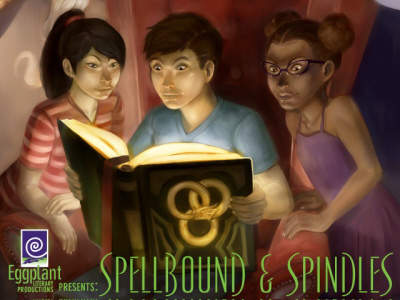

 Normally, I write here about fantasy (which to me includes science fiction and horror). But some mimetic novels have a lot to say about the fantastic. Or a lot to say about related themes; wonder, for example, or the numinous. Those books are sometimes worth discussing at Black Gate, I think. Which is why I want to write now about Robertson Davies’s Deptford Trilogy — classics of Canadian literature, novels deeply concerned with wonder — and consider whether they should have been even more open to the fantastic than they in fact are.
Normally, I write here about fantasy (which to me includes science fiction and horror). But some mimetic novels have a lot to say about the fantastic. Or a lot to say about related themes; wonder, for example, or the numinous. Those books are sometimes worth discussing at Black Gate, I think. Which is why I want to write now about Robertson Davies’s Deptford Trilogy — classics of Canadian literature, novels deeply concerned with wonder — and consider whether they should have been even more open to the fantastic than they in fact are.
